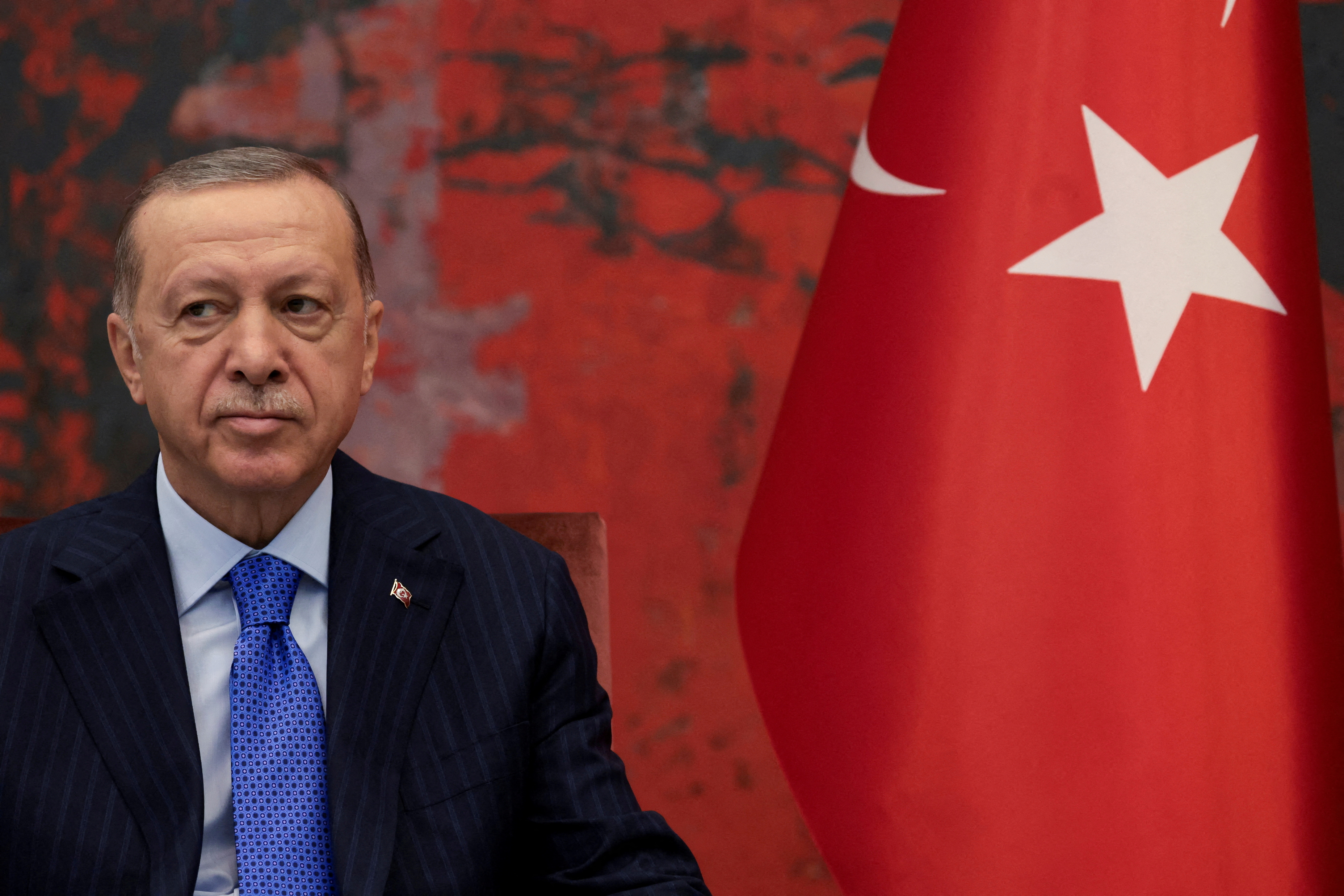Despite Erdogan’s statements, Turkish military protection of the Palestinians is not on the cards
Turkish president Recep Tayyip Erdogan does not often go along with the geopolitical concerns of the US and Europe. He belongs to the generation of Turkish politicians whose outlook is more Eurasian and Middle Eastern than European and more religious than secular in line with the policy of strategic depth.
Strategic depth holds that foreign policy should be determined by taking full account of Turkish history, geography, language and religion in place of the one-dimensional European orientation of Kemal Ataturk.
Actually, Ataturk’s foreign policy dogma was peace at home and peace in the world, which for all practical purposes means preventing internal strife and staying out of foreign wars. And his European orientation, like the abolition of the fez, was more a social than a foreign policy dogma.
Like Victor Orbán of Hungary and Donald Trump in the US, Erdogan does not believe it wise completely to ostracise Russia from the West but unlike Trump, he is also refreshingly critical of Israel for its conduct of the war in Gaza.
America and Europe are strangely silent about the appalling plight of the Palestinians in Gaza whereas Erdogan, to his credit, will not let them off the hook for their indifference to the breaches of human rights and humanitarian law they are prepared tolerate there.
In a speech in Rize on the Black Sea coast last week he even tentatively floated the idea that Turkey should be prepared to intervene militarily to protect the Palestinians. It was probably said for narrow domestic consumption. It is not militarily possible as Israel is too powerful, and in any case it would be too late to be of any use to the Palestinians in Gaza, 40,000 of whom have already perished.
By contrast, Israel has the US and Britain, both of whom are rushing military support in the current escalation of tension. They do this even though Israel is the strongest military power in the Middle East and even though it acted in defiance of the wishes of the US president – he wanted a ceasefire in Gaza and the release of the Israeli hostages and not the assassination of the ceasefire negotiator in Iran of all places.
The poor Palestinians in Gaza are all on their own. Iran is not able to protect them and any retaliation for the assassination on its territory would be for revenge rather than their protection. They do not have any friends with the military capability to take on Israel and they are in the impossible position of being at the mercy of fanatics in and out of the Israeli government.
Despite president Erdogan’s musings, Turkish military protection of the Palestinians is not on the cards and while it is fascinating to speculate how the Turkish army would fare against the Israeli Defence Forces, it is not going to happen.
Still, as history, geography and religion are important aspects of the dogma of strategic depth, it is instructive to analyse briefly what happened the last time Turkish troops were militarily active in Palestine in 1914-18’s World War I.
The Ottoman Empire was defending its territories along the Eastern Mediterranean coast and Arabia. They were fighting the British Imperial forces under General Allenby supported by Arab nationalists who were persuaded by the British that they would get a united Arab nation in the Middle East if they fought with Britain against the Ottomans. The film Lawrence of Arabia accurately depicts the campaign against Turkish troops by Arab nationalists led by TE Lawrence, an Arabist intellectual, that enabled General Allenby to defeat them and take Jerusalem, which he did on December 11, 1917.
After losing Jerusalem, the Turkish forces retreated north and regrouped a few miles south of Aleppo under the command of Mustafa Kemal who as Kemal Ataturk was to become the first president of Turkey. Mustafa Kemal organised a proper defence line as the war ended but he never forgot or forgave the Arab nationalists for fighting for the British and this shaped the attitude in modern Turkey towards Arab nationalists until president Erdogan came along in the early part of this century and reset Turkish foreign policy in favour of Arab coreligionists.
What happened at the end of the war was that the Arab nationalists discovered that the British and the French – and the Russians until they pulled out – had divided the Ottoman Empire between them in a secret treaty known as the Sykes-Picot agreement in 1916.
The Russians were to get Constantinople and the north-east of present-day Turkey; France was to get the south-east of Turkey, Syria and Lebanon; and Britain, Palestine, Jordan and Iraq.
The Russians pulled out after the Bolshevik Revolution of October 1917 and in November, Balfour made his famous declaration promising the establishment in Palestine of a national home for Jewish people.
TE Lawrence, who championed the creation of an Arab nation, believed a Jewish homeland could have emerged peacefully in the region if the British and the French had not betrayed the Arabs.
The irony is that Arab nationalists fought on the side of the British against their Turkish co-religionists hoping for an Arab nation, but were tricked into accepting an arbitrary division of Arab lands between Britain and France and an incipient Jewish state.
Alper Ali Riza is a king’s counsel in the UK and a retired part time judge







Click here to change your cookie preferences